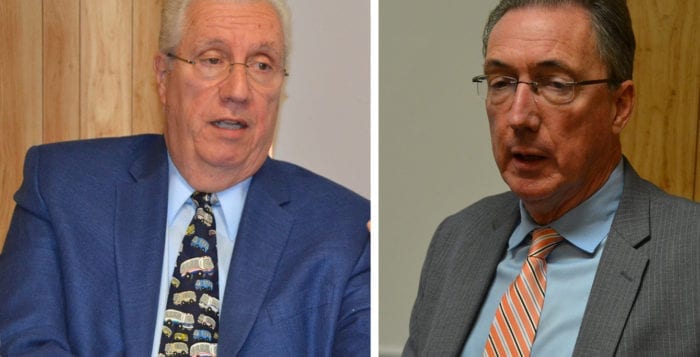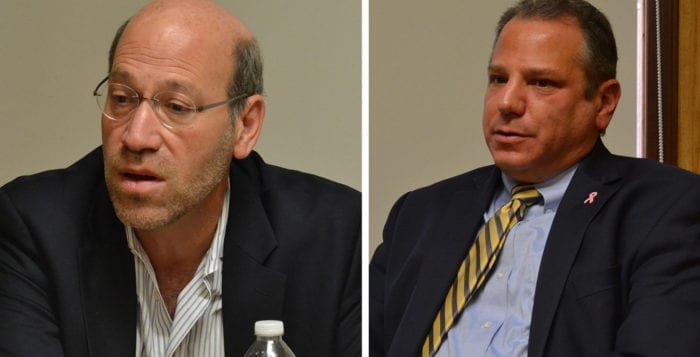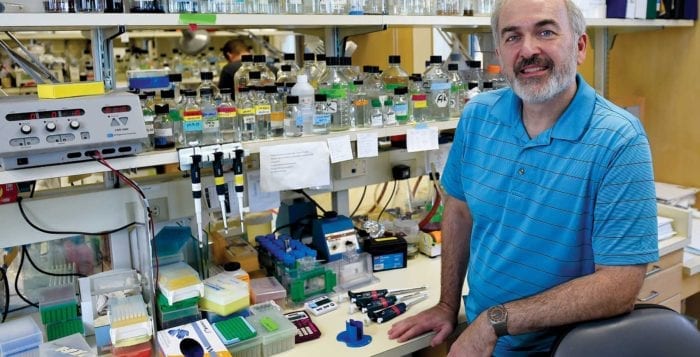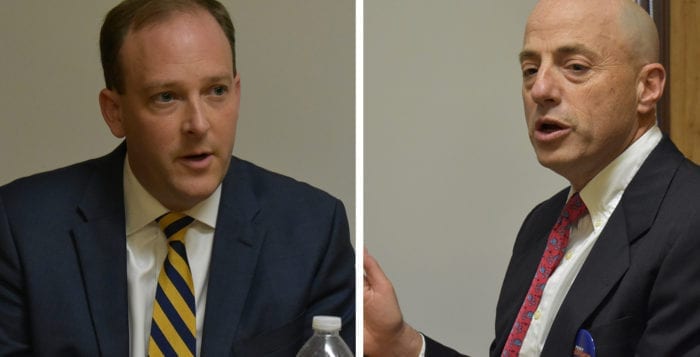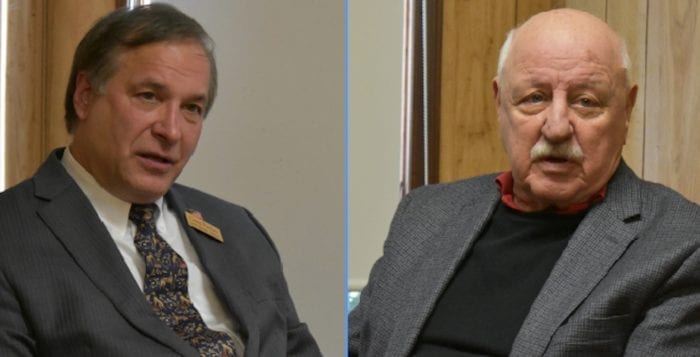It’s a political rematch two years in the making for New York State’s 5th Senate District.
Incumbent Carl Marcellino (R-Syosset), who was first elected to office in a 1995 special election, currently represents the mixed district consisting of Nassau and Suffolk residents. He claims to have successfully gotten 275 laws passed and serves as chairman of the Senate
Education Committee.
Democrat Jim Gaughran, of Northport, is a sole-practitioner attorney of nearly 30 years experience and current chairman of Suffolk County Water Authority. He’s previously served as a councilman for the Town of
Huntington and a Suffolk County legislator. In the 2016 race, he came up short against Marcellino by a slim margin of 1,761 votes, or roughly 1.2 percent of the roughly 145,000 ballots cast.s. Now, he eyes an office in the state Senate.
“One of the primary differences is the senator is very happy with the way things are going, the way Albany works,” Gaughran said. “I think there’s a lot we need to do in Albany that hasn’t been done.”
Both candidates sat down for an exclusive interview with TBR News Media on state and local issues.
Education
The challenger recognizes that the federal government’s action to cap state and local tax deductions at $10,000 will pose a financial challenge to homeowners. If elected, he’d like to use it as a reason to increase state funding of public schools, while gradually cutting property taxes.
“To me, public education should be the No. 1 funding priority for the State of New York, period,” he said.
Gaughran said he believes there are too many unfunded mandates on schools, the state needs to provide funds for projects, and would like to decouple state testing scores from teacher evaluations.
Marcellino claimed he has increased state aid to school districts by approximately $1,500 per pupil while serving as state education chair. He supports the 2 percent state-mandated tax cap to keep taxes under control. Marcello said he also believes the state needs to study and review efficiency of school programs it sponsors and pays for. The incumbent said part of that burden also falls on school districts to be careful with what programs they introduce, ensure they are needed and all districts should consider consolidation.
Infrastructure
One area Gaughran said he’d like to see Long Island receive more funding is for infrastructure, particularly relating to improving water quality. He will fight for more state funding to upgrade sewer treatment facilities to state-of-the-art technology and expand sewers. The Democrat said the biggest issue faced in Suffolk is to improve the water quality by replacing current cesspools with microsewers. He believed the state should provide tax incentives and grants.
Marcellino said he’s a strong proponent of environmental protection, citing his work requiring notification prior to pesticide application and a bill written to reform the state’s cleanup of brownfield and superfund sites in the early 2000s.
“Preserving of our open space and our clean air, preserving green fields is a key element here. It’s important we move forward with that and we do more of it,” he said. “Frankly, not enough is being done and we need to do more.”
The incumbent said the state needs to do more to partner with lower levels of government, help out financially where possible and supports offering state tax incentives.
LIPA’s lawsuit over Northport power plant
Town of Huntington and Northport-East Northport school district residents have been calling on elected officials for their help and assistance this year in mitigating any impact Long Island Power Authority’s tax certiorari case could have on local property owners as it moves toward a trial.
Gaughran said he was a member of Huntington Town Board when the original agreement was made for LIPA taking over the Northport Power Station and believed that the town should be protected in the tax certiorari case.
“The state needs to support the Town of Huntington and its residents,” the Democratic challenger said.
Marcellino cited his efforts to aid the town and school district by drafting and co-sponsoring a bill that would have spread out the difference in taxes over a 15-year period and allowed access to state funds to offset any tax revenue difference. He said he would support possible LIPA reform and changes that he felt would benefit his constituents, but any action would need to be carefully thought through and studied in advance for potential ramifications.
His challenger said he would look to reform LIPA in two ways: First would be to make appointment to its board a process of government approval and confirmation by the state Senate; and, second, he would look to force the utility company go before the state’s Public Service Commission for approval of its consumer fees and rates.
Ethics reform
If elected, Gaughran said he would like to push for real ethic laws in New York State politics. As former state Assembly Speaker Sheldon Silver (D) appeals a public corruption conviction, the Democratic challenger said he fears others may be using public office for private benefit. He proposes to force state elected officials to not have outside employment while serving in state Legislature and push for campaign financial reform to close existing loopholes.
“We are capable of policing ourselves,” Marcellino replied. “No one likes to see someone game the system.”
The incumbent said to force state elected officials to give up outside income would cause many talented individuals to leave office, and anticipates those remaining as full-time legislators to request an increase in pay. He said changes like those proposed by Gaughran would require a statewide public referendum.
“Their ability to make change happen is there, but it’s not that simple,” Marcellino said.

